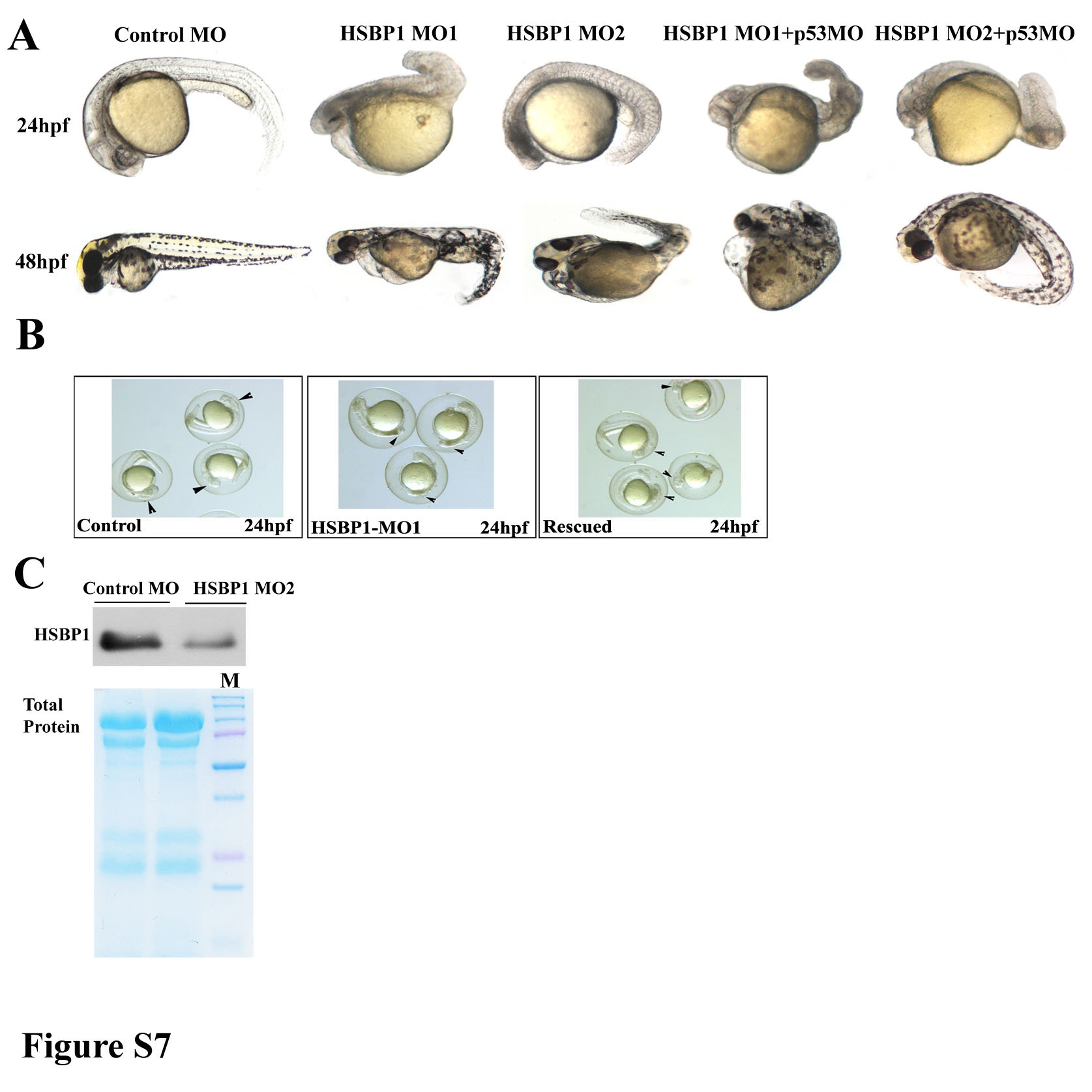Fig. S7
HSBP1 morpholino (MO)-treated zebrafish embryos exhibit developmental defects.
(A) One to two-cell-stage embryos were injected with control MO, HSBP1 MO1 or HSBP MO2. Embryos were photographed showing lateral views at different stages post MO-treatment. HSBP1 MO1 and MO2- injected embryos displayed anterior defects in the head region and developmental problems such as shortened body length and curved body axis. The HSBP1 MO1 or HSBP1 MO2-injected embryos were also co-injected with p53 MO to determine if HSBP1 4 MO-injected defects observed at 24 hpf or 48hpf can be partially rescued. The MO-treated morphant phenotypes were more than 80-85% (n=50). Mag. 40x. Percent defects for the embryos that survived at 24 hpf and 48 hpf are indicated in Table S2.
(B) 24 hpf embryos injected with control MO (left panel); HSBP1 MO1 (middle panel); note that HSBP1 MO1 (right panel) and rescued with 500pg/embryo of HSBP1 mRNA. Arrowheads point to the embryos showing proper head region in control MO and HSBP1 MO1/HSBP1 mRNA groups and apoptotic head region in HSBP1 MO1-treated embryos.
(C) One to two-cell-stage embryos were injected with control MO or HSBP1 MO2. At 24 hpf, embryo cell lysates were used in immunoblotting analyses using HSBP1 antibody. Lower panel shows Coomassie Blue staining as control for loading. In each experiment more than 300 embryos were injected and experiments were repeated 3 times.
Reprinted from Developmental Biology, 386(2), Eroglu, B., Min, J.N., Zhang, Y., Szurek, E., Moskophidis, D., Eroglu, A., and Mivechi, N.F., An essential role for heat shock transcription factor binding protein 1 (HSBP1) during early embryonic development, 448-460, Copyright (2014) with permission from Elsevier. Full text @ Dev. Biol.

